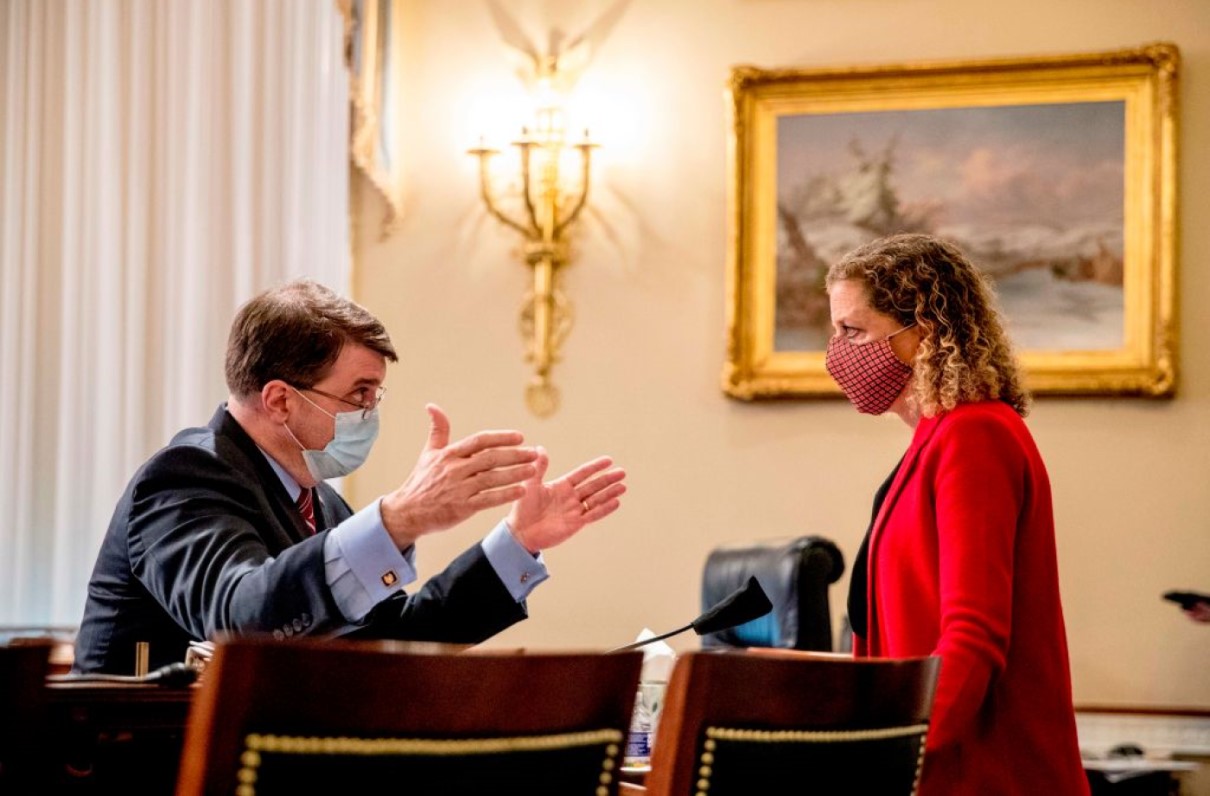In an unusual maneuver July 9, the House Appropriations Committee approved by a vote of 30-20 its fiscal year 2021 funding package for DoD military personnel and construction projects and VA health care and benefits programs, designating $12.5 billion in emergency funding to avoid budget cap restrictions imposed in last year’s budget agreement to ensure adequate resources for veterans health care in the community.
The VA and lawmakers have been wrestling with the rapidly growing costs of veterans’ health care in recent years. These increases are due in part to the passage of the VA MISSION Act in 2018 to address the long waiting lists for veterans seeking care in VA at the time. The FY 2021 funding boost in large part is to provide more funding for VA community care, which was expanded in the act.
“We have finally achieved consensus with the Senate that the cost of VA health care is growing exponentially and cannot remain within the budget caps,” said Rep. Debbie Wasserman Schultz (D-Fla.), chair of the House Appropriations Subcommittee on Military Construction, Veterans Affairs, and Related Agencies. “For that reason, the $12.5 billion within the total is designated as emergency funding to adequately fund VA health care.”
[RELATED: As VA Grows Telehealth By 1,000%, See How Health Care Delivery Is Changing]
The $104.8 billion discretionary funding in the House bill for VA is $12.3 billion above this year’s spending levels but is $35 million below the president’s budget request. $90 billion of the discretionary funding is for VA health care — in line with the president’s request but $9.8 billion above FY 2020 authorization.
Some of the VA provisions include:
- $10.3 billion for mental health care and $313 million for suicide prevention outreach.
- $661 million in gender-specific care for women.
- $1.9 billion for VA homeless assistance programs.
- $504 million for opioid abuse prevention programs.
- $300 million for rural health initiatives.
- Increase funding in medical and prosthetic research, implementation of VA’s electronic health record system, and VA construction projects.
- $3.2 billion for VA Benefits Administration operations to include processing of disability claims and appeals backlogs — $62 million more than FY 2020.
- $94.2 billion for advance FY 2022 funding for VA medical programs, and $145.3 billion in advance mandatory funding for VA benefit programs to ensure continuity in veterans’ health care and benefits in the event of continuing resolution or disruption to the funding.
House Appropriations Committee Chair Rep. Nita Lowey (D-N.Y.) stated, “This bill makes unprecedented investments in our veterans through our VA medical system to ensure that every veteran has access to the top-notch health care they deserve.”
MOAA is grateful for House appropriators making VA’s budget a top priority again this year and for lawmakers’ understanding of how important this funding is for our veterans. It is especially critical during this time as the country continues waging war against COVID-19.
The bill will now go to the full House for a vote.
We urge the House and the Senate to move quickly in passing the VA appropriations bill and the 11 other government spending bills so funding for VA and all federal agencies will be in place when the new fiscal year begins Oct. 1.
Stay Informed
It’s more important than ever to make sure you’re in the know and your military benefits are protected.

